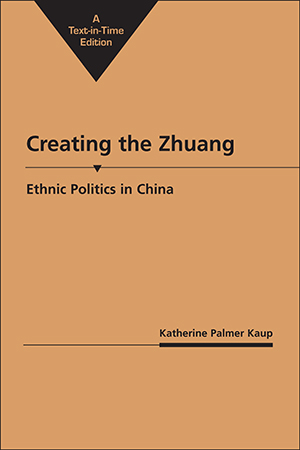
- 2000/226 pages
Creating the Zhuang:
Ethnic Politics in China
Hardcover: $45.00
ISBN: 978-1-55587-886-3
Ebook: $45.00
ISBN: 978-1-62637-322-8
Managing ethnic nationalism within the People's Republic of China has become increasingly challenging. As new reforms widen economic disparities between minorities and the Han majority, even the most assimilated of minorities, the Zhuang, have begun to demand special treatment from the central government.
The Chinese Communist Party (CCP) officially recognized the sixteen million Zhuang as China's largest minority nationality in the early 1950s, granting them regional autonomy. Prior to this, however, the Zhuang did not share a common ethnic identity. Katherine Palmer Kaup explores why the CCP in effect created the Zhuang nationality. Why did it launch a massive propaganda campaign to increase nationality consciousness? How is the party now responding to the Zhuang's assertive political demands?
This pioneering study unveils the unique culture of the Zhuang people, showing at the same time the CCP's skillful balancing of ethnic and regional loyalties over the past 50 years to integrate the diversity of China's ethnic mosaic.







